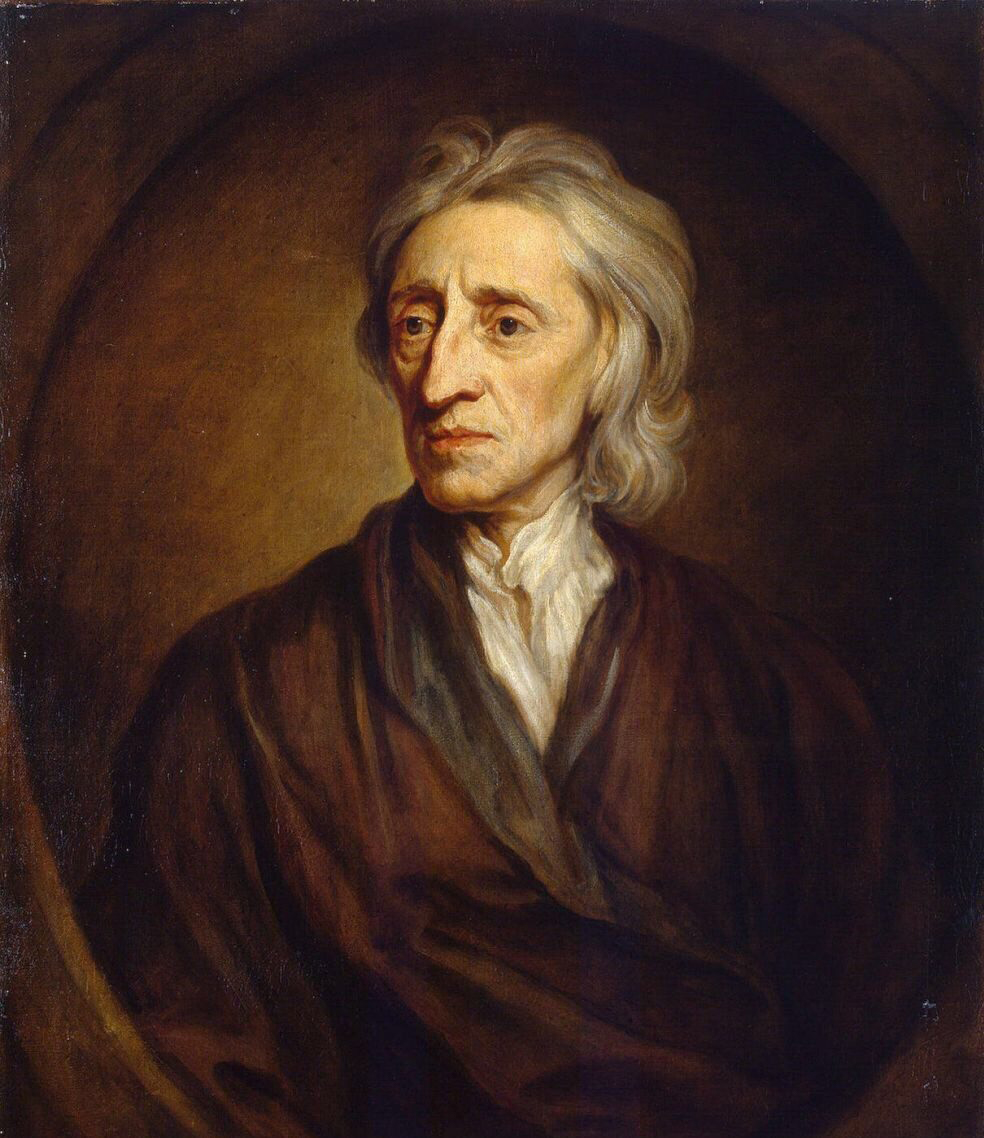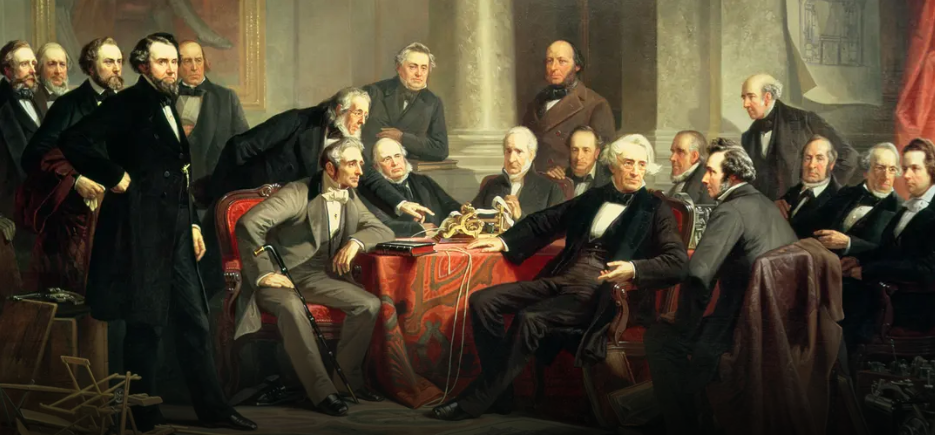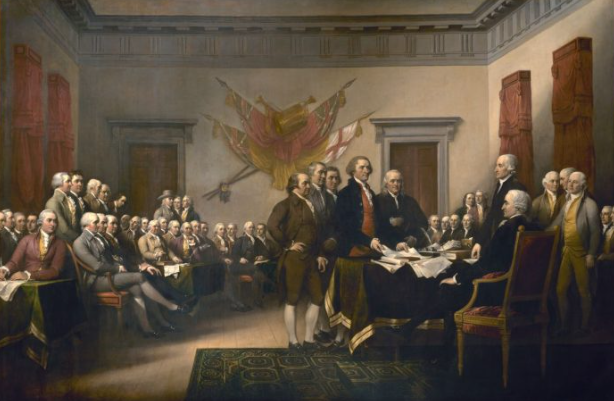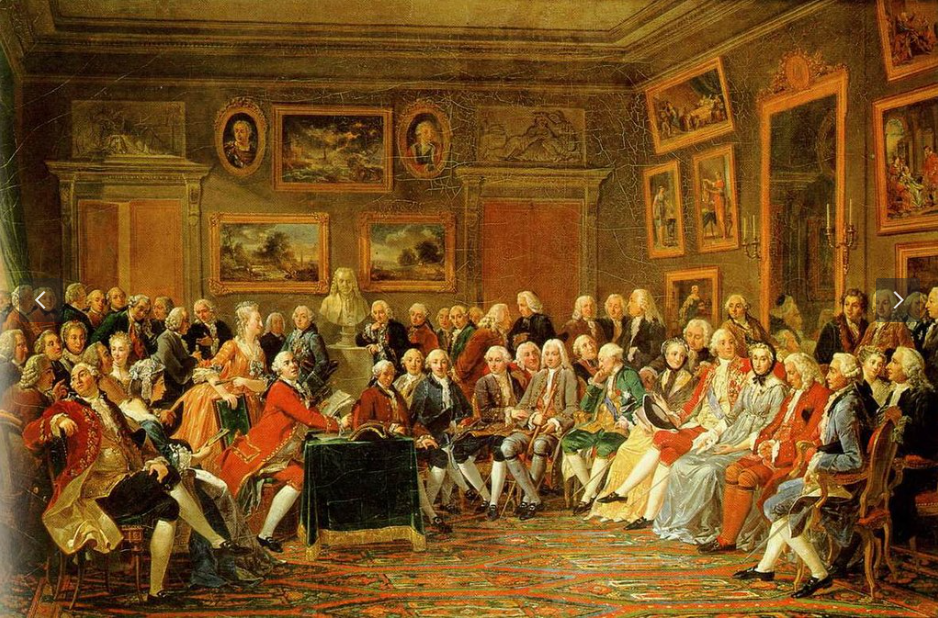The Enlightenment: A Revolutionary Era of Reason and Individualism
The Enlightenment, often heralded as the Age of Reason, was an intellectual movement that swept through the 18th century, shaping the modern world with its emphasis on reason, individualism, and skepticism of traditional authority. As the bedrock of many modern political, social, and philosophical ideals, The Enlightenment marked a pivotal turning point in history, ushering in a new era of progress and transformation. This blog post delves into the central ideas, influential thinkers, and lasting impacts of The Enlightenment, examining how this revolutionary period shaped the course of human civilization.
Central Ideas of The Enlightenment
At its core, The Enlightenment was characterized by a shift from reliance on divine revelation and traditional authority to the use of reason as the primary tool for understanding the world. Philosophers of the time championed the idea that humans, born with a “tabula rasa” or blank slate, were inherently equal and capable of shaping their destinies through reason and experience. This idea laid the foundation for revolutionary concepts in politics, governance, and human rights.
Key Principles of The Enlightenment:
Natural Rights: John Locke’s assertion that all individuals are born with inherent rights to life, liberty, and property transformed the political landscape. He argued that governments exist to protect these rights, and if they fail, the people have the right to alter or abolish them.
The Social Contract: This theory posited that individuals consent to give up certain freedoms in exchange for the security and order provided by a governing authority. Thinkers like Rousseau emphasized the collective will and the role of government in serving the common good.
Separation of Powers: Montesquieu’s idea of dividing government into three branches—legislative, executive, and judicial—introduced a system of checks and balances to prevent tyranny.
Reason Over Revelation: The phrase encapsulated the shift towards valuing human logic and scientific inquiry over blind faith and tradition.
These principles directly challenged long-standing systems of monarchy, feudalism, and religious orthodoxy, paving the way for revolutions across the globe.

New Ideas Challenge Old Structures
Before The Enlightenment, societies were predominantly hierarchical and steeped in traditions that upheld rigid social orders. Kings ruled by divine right, and religious institutions wielded immense power over both political and personal lives. However, the intellectual awakening of The Enlightenment fostered widespread questioning of these systems.
Shifts in Society:
Patriarchy: Women began to demand greater equality, challenging traditional gender roles and advocating for suffrage and education.
Slavery: The universal ideals of freedom and equality inspired movements against slavery, particularly in revolutionary Haiti.
Monarchy: The divine right of kings was replaced by the concept of governments deriving their power from the consent of the governed.
These seismic shifts often led to tension and upheaval, as entrenched elites resisted the erosion of their privileges. The French Revolution, for example, was fueled by Enlightenment ideals but met with violent backlash from monarchists and conservative forces.
Nationalism and The Enlightenment
The intellectual ferment of The Enlightenment also gave rise to modern nationalism, a force that reshaped political boundaries and identities. Nationalism emphasized loyalty to a nation-state, often tied to shared language, culture, and history.
Enlightenment’s Role in Nationalism:
American Revolution: Inspired by Enlightenment thinkers like Locke and Paine, American colonists demanded independence from Britain, culminating in the Declaration of Independence.
French Revolution: The ideals of liberty, equality, and fraternity fueled revolutionary fervor in France, leading to the abolition of the monarchy and the establishment of a republic.
Latin American Revolutions: Figures like Simón Bolívar drew on Enlightenment principles to lead independence movements against Spanish colonial rule.
Unification Movements: Italy and Germany achieved unification in the 19th century, driven by Enlightenment-inspired ideals of self-determination and national sovereignty.
Key Philosophers of The Enlightenment
The profound impact of The Enlightenment can be traced to the works of its leading thinkers. Each contributed uniquely to the era’s intellectual landscape, shaping political, economic, and social discourse.
Notable Philosophers:
John Locke: Known as the “Father of Liberalism,” Locke’s theories on natural rights and government accountability influenced the American and French Revolutions.
Voltaire: A staunch advocate for freedom of speech, religion, and the separation of church and state, Voltaire’s wit and criticism of dogma resonated throughout Europe.
Jean-Jacques Rousseau: Rousseau’s emphasis on the “general will” and his belief in the inherent goodness of humanity inspired both democratic ideals and revolutionary movements.
Baron de Montesquieu: His concept of the separation of powers remains a cornerstone of modern democratic governance.
Adam Smith: The “Wealth of Nations” established the principles of capitalism and free-market economics, challenging mercantilist practices.
Thomas Hobbes: While advocating for strong centralized authority, Hobbes’s work highlighted the necessity of social contracts to prevent chaos.
Thomas Paine: His pamphlet “Common Sense” was instrumental in rallying American colonists toward independence.
The Enlightenment and Reform Movements
The egalitarian ethos of The Enlightenment inspired numerous reform movements aimed at expanding rights and dismantling oppressive systems. These movements challenged existing hierarchies and sought to extend Enlightenment principles to marginalized groups.
Reform Highlights:
Abolition of Slavery: Enlightenment ideals underscored the moral and logical fallacies of slavery, inspiring abolitionist movements across the Americas and Europe.
Women’s Rights: The Seneca Falls Convention in 1848 epitomized the fight for women’s suffrage, drawing directly from Enlightenment concepts of natural rights.
End of Serfdom: The decline of feudal systems and the abolition of serfdom in many parts of Europe reflected the era’s commitment to liberty.
Religion, Science, and The Enlightenment
One of the most transformative aspects of The Enlightenment was its impact on religion. While many Enlightenment thinkers retained a belief in a creator, their views often diverged from traditional religious doctrines.
Religion and Rationality:
Deism: Prominent among Enlightenment thinkers, deism emphasized a creator who established natural laws but did not interfere with human affairs. Thomas Jefferson famously edited the Bible to align with rationalist principles.
Religious Tolerance: Voltaire and others championed freedom of religion, criticizing the intolerance and persecution associated with organized religions.
Scientific Inquiry: The Enlightenment’s reliance on reason and observation advanced scientific understanding, challenging religious explanations of natural phenomena.
Lasting Impact of The Enlightenment
The legacy of The Enlightenment endures in modern democratic institutions, human rights frameworks, and scientific advancements. Its principles continue to inspire movements for justice, equality, and progress worldwide.
Key Contributions:
Political Revolutions: The Enlightenment provided the ideological foundation for the American, French, and Haitian Revolutions.
Modern Democracy: Concepts like checks and balances, popular sovereignty, and individual rights are embedded in contemporary governance.
Scientific Progress: Enlightenment ideals of inquiry and empiricism laid the groundwork for modern science.
Cultural Shifts: The emphasis on reason and skepticism fostered greater intellectual and cultural diversity.
Conclusion
The Enlightenment was more than just a philosophical movement; it was a transformative era that reshaped human thought and action. By championing reason, individualism, and equality, it dismantled centuries-old hierarchies and laid the groundwork for modern society. The echoes of The Enlightenment reverberate through history, influencing revolutions, reforms, and innovations that continue to shape our world today.

FAQs on “The Enlightenment” with Detailed Answers
1. What was the Enlightenment?
The Enlightenment was an intellectual and cultural movement in the 17th and 18th centuries that emphasized reason, science, and individualism over tradition and religious authority.
2. When did the Enlightenment occur?
The Enlightenment occurred roughly between the late 1600s and the early 1800s, peaking in the 18th century.
3. What were the main goals of the Enlightenment?
The goals included promoting knowledge through reason, advocating for human rights, challenging traditional authority, and fostering progress in science and society.
4. Who were the key figures of the Enlightenment?
Key figures included John Locke, Voltaire, Jean-Jacques Rousseau, Immanuel Kant, Montesquieu, and Denis Diderot.
5. How did John Locke influence the Enlightenment?
Locke’s ideas on natural rights, government by consent, and the social contract were foundational to Enlightenment political thought.
6. What is the “Age of Reason”?
The “Age of Reason” is another term for the Enlightenment, emphasizing its focus on rational thought and empirical evidence.
7. What role did Immanuel Kant play in the Enlightenment?
Kant’s essay “What Is Enlightenment?” defined the movement as humanity’s emergence from self-imposed immaturity, advocating for critical thinking and independence.
8. How did Voltaire contribute to the Enlightenment?
Voltaire championed freedom of speech, religious tolerance, and separation of church and state, often criticizing institutional authority.
9. What were the main ideas of Montesquieu?
Montesquieu’s ideas on the separation of powers in government influenced modern democratic systems.
10. How did Jean-Jacques Rousseau influence political thought?
Rousseau’s concept of the “general will” and his ideas on direct democracy influenced revolutionary movements and modern political theory.
11. What role did Diderot’s Encyclopédie play in the Enlightenment?
The Encyclopédie compiled and disseminated knowledge, making Enlightenment ideas accessible to a broader audience.
12. How did the Enlightenment affect religion?
The Enlightenment questioned traditional religious doctrines, promoting deism and secularism while challenging the authority of the church.
13. What was the impact of the Enlightenment on science?
It fostered scientific advancements by emphasizing observation, experimentation, and the application of reason.
14. How did the Enlightenment influence education?
The movement promoted universal education, critical thinking, and access to knowledge for all social classes.
15. What were the economic ideas of the Enlightenment?
Economic thinkers like Adam Smith advocated for free markets, competition, and limited government intervention, laying the groundwork for modern capitalism.
16. How did the Enlightenment influence the American Revolution?
Enlightenment ideas on liberty, natural rights, and democracy directly inspired the Declaration of Independence and the U.S. Constitution.
17. What was the Enlightenment’s impact on the French Revolution?
The Enlightenment’s emphasis on equality, freedom, and justice fueled revolutionary demands for political and social reform in France.
18. What were the cultural effects of the Enlightenment?
The Enlightenment encouraged artistic and literary works that reflected reason, individualism, and critiques of traditional authority.
19. How did the Enlightenment influence women’s rights?
Figures like Mary Wollstonecraft argued for women’s education and equality, laying the foundation for feminist movements.
20. What is deism, and how is it related to the Enlightenment?
Deism is the belief in a rational God who does not intervene in human affairs, a view popular among Enlightenment thinkers.
21. What were salons, and what role did they play in the Enlightenment?
Salons were social gatherings where intellectuals discussed ideas, spreading Enlightenment thought and fostering cultural exchange.
22. How did the Enlightenment affect the arts?
The Enlightenment influenced the neoclassical style, emphasizing order, symmetry, and reason in visual arts and architecture.
23. What were the political consequences of the Enlightenment?
It led to the development of modern democracies, the rise of constitutional governments, and the decline of absolute monarchies.
24. How did the Enlightenment address social inequality?
Many Enlightenment thinkers criticized social inequality and advocated for meritocracy, though some upheld existing hierarchies.
25. What role did the printing press play in the Enlightenment?
The printing press facilitated the widespread dissemination of Enlightenment ideas, reaching a broader and more diverse audience.
26. How did Enlightenment ideas spread across Europe?
Ideas spread through books, pamphlets, correspondence, and institutions like universities and Masonic lodges.
27. What is the “social contract,” and why is it significant?
The social contract is the idea that governments derive their authority from the consent of the governed, a principle central to Enlightenment political theory.
28. How did the Enlightenment influence colonial independence movements?
Colonial leaders used Enlightenment principles to argue for self-determination and the rejection of imperial rule.
29. What were the criticisms of the Enlightenment?
Critics argued that it overemphasized reason, ignored emotions and traditions, and sometimes justified colonialism and inequality.
30. How did Enlightenment thinkers view human nature?
Most Enlightenment thinkers believed in the potential for human progress through reason and education, though views on innate goodness or selfishness varied.
31. What was the “Republic of Letters”?
The Republic of Letters was an intellectual community that transcended national borders, fostering the exchange of Enlightenment ideas.
32. How did the Enlightenment influence modern science?
It laid the foundation for the scientific method and encouraged empirical research, contributing to advancements in fields like physics, biology, and chemistry.
33. What is the difference between the Enlightenment and the Scientific Revolution?
The Scientific Revolution focused on empirical discoveries in the natural world, while the Enlightenment applied rational principles to society, politics, and culture.
34. How did Enlightenment ideas influence law and justice?
Thinkers like Cesare Beccaria argued for criminal justice reform, advocating for fair trials and opposition to torture and capital punishment.
35. What was the role of Enlightenment thinkers in abolitionism?
Enlightenment ideals of equality and human rights influenced early abolitionist movements against slavery.
36. How did Enlightenment ideas impact colonial governance?
Colonial leaders adopted Enlightenment principles to advocate for legal reforms, education, and self-rule.
37. What were the limitations of the Enlightenment?
The Enlightenment often excluded women, non-Europeans, and lower classes from its vision of progress and equality.
38. How did the Industrial Revolution relate to the Enlightenment?
The Industrial Revolution was influenced by Enlightenment emphasis on innovation, efficiency, and scientific advancement.
39. What was the role of skepticism in the Enlightenment?
Skepticism challenged traditional doctrines and authority, fostering critical inquiry and debate.
40. How did the Enlightenment influence education systems?
Education systems adopted Enlightenment principles by emphasizing critical thinking, secular subjects, and accessibility.
41. What role did coffeehouses play in the Enlightenment?
Coffeehouses served as hubs for discussion and dissemination of Enlightenment ideas among intellectuals and the public.
42. How did Enlightenment thinkers view monarchy?
Many criticized absolute monarchy, advocating for constitutionalism and checks on royal power, while some supported enlightened despotism.
43. What was “enlightened despotism”?
Enlightened despotism refers to monarchs who implemented Enlightenment reforms, such as Frederick the Great of Prussia and Catherine the Great of Russia.
44. How did the Enlightenment influence religious tolerance?
Enlightenment thinkers advocated for religious tolerance, criticizing persecution and promoting freedom of belief.
45. What is the legacy of the Enlightenment today?
The Enlightenment’s emphasis on reason, individual rights, and secular governance continues to shape modern democracies and global culture.
46. How did the Enlightenment influence economic thought?
Economic ideas like free markets and competition, advocated by Adam Smith, formed the basis of modern capitalism.
47. What was the role of censorship during the Enlightenment?
Governments and religious authorities often censored Enlightenment works, but ideas spread through underground publications and clandestine networks.
48. How did the Enlightenment affect personal freedoms?
The movement emphasized personal freedoms such as freedom of speech, press, and religion, laying the groundwork for modern human rights.
49. What were the connections between the Enlightenment and the American Constitution?
The Constitution reflects Enlightenment principles like separation of powers, individual rights, and the social contract.
50. Why is the Enlightenment considered a turning point in history?
The Enlightenment transformed Western thought, challenging traditional authority and laying the intellectual foundations for modern democracy, science, and culture.








